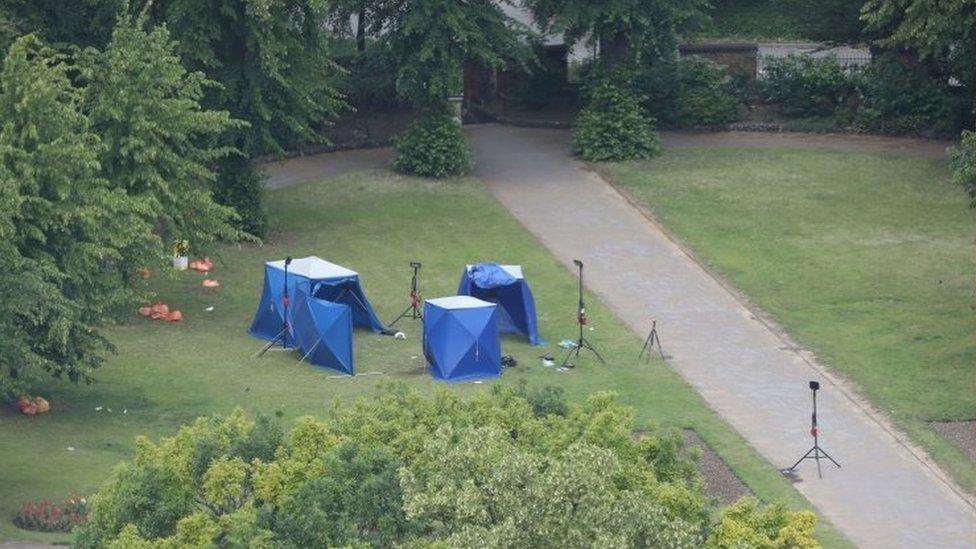Reading stabbings: What we know so far
- Published
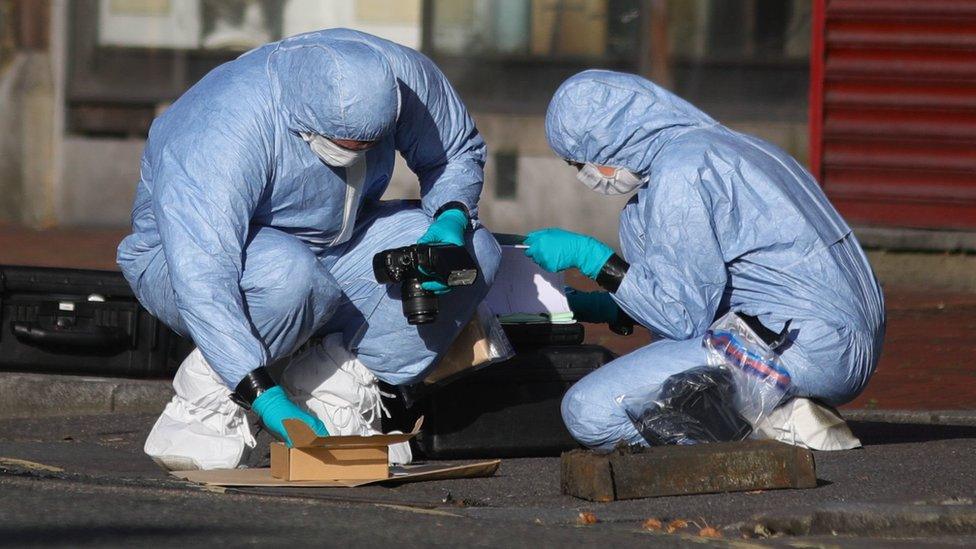
Three people are dead and at least three others have been injured after stabbings in a park in Reading.
Police have said they are treating the attack as a "terrorist incident".
Counter terrorism officers are continuing to question local man Khairi Saadallah, 25.
What happened?
Police were called to Forbury Gardens at about 19:00 BST on Saturday following reports that a number of people had been stabbed.
Thames Valley Police said a suspect was apprehended and arrested within five minutes of the call.
That man is now known to be Mr Saadallah, who remains in custody.
He was initially arrested on suspicion of murder, and was later re-arrested under Section 41 of the Terrorism Act 2000.
Home Secretary Priti Patel praised the officers who arrested him.
"These officers - a few of whom were student officers - ran towards danger to help those in need without second thought," she told MPs.
"A young, unarmed police officer took down the suspect without hesitation, while another performed emergency first aid to those who were injured."
Security guard Sydney McDonald, 65, who witnessed the arrest, said officers "rugby-tackled" the man to the floor at approximately 19:10.
The head of counter terrorism policing, Metropolitan Police Assistant Commissioner Neil Basu, said the attack was unrelated to a peaceful Black Lives Matter protest held hours earlier in the park, and that members of the public had provided emergency first aid to victims in the immediate aftermath.
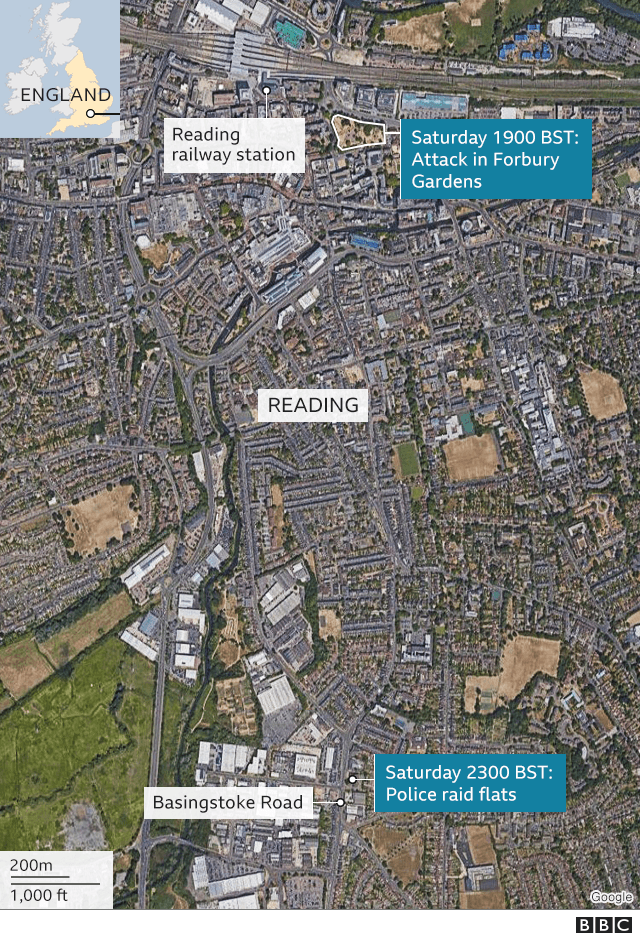

Three people suffered serious injuries and were taken to hospital. They have since been discharged.
About a dozen armed police officers with shields were seen entering a block of flats in Basingstoke Road in Reading at about 23:00 BST, and families living in the building were moved out.
A loud bang was heard from the flats at about 00:30 BST, as officers gained entry to an apartment.
Armed police went to a block of flats in Reading following the stabbings in Forbury Gardens
What do we know about the victims?
Tributes have been paid to the three people who died - teacher James Furlong, American Joe Ritchie-Bennett and scientist David Wails.
Mr Furlong, 36, was head of history and government and politics at the Holt School in Wokingham.
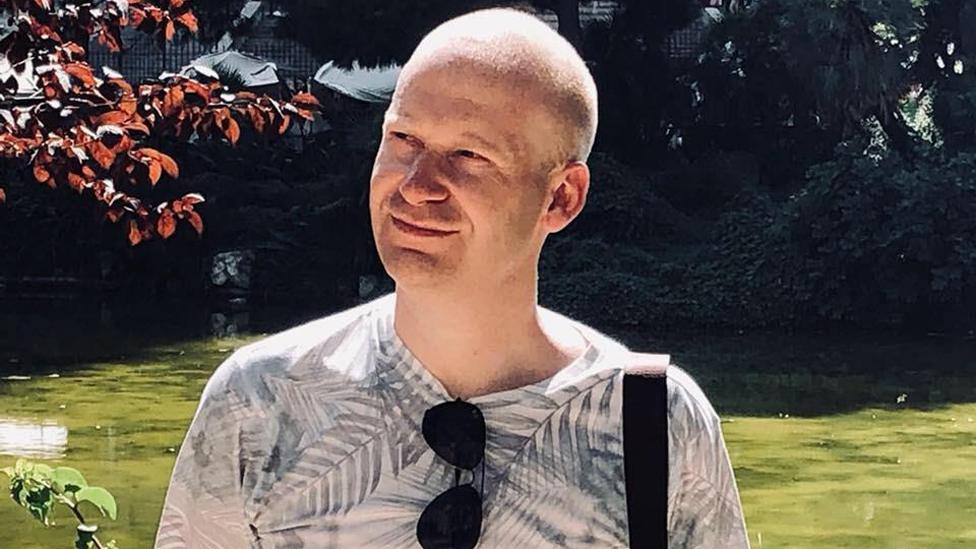
James Furlong taught history at the Holt School in Wokingham
His parents, Gary and Janet, described their son as a "wonderful man" who will "live in our hearts forever".
The Holt School said Mr Furlong was a "kind and gentle man" with a "real sense of duty" who "truly inspired everyone he taught".
Pupils and staff at The Holt School, Wokingham paid tribute to James Furlong
On Monday, Joe Ritchie-Bennett was also named by US TV network CBS as having died.
The 39-year-old was originally from Philadelphia and had lived in the UK for 15 years, according to reports.
According to the Philadelphia Inquirer newspaper, Mr Ritchie-Bennett initially worked for a law firm in London after moving to the UK. About 10 years ago he joined a Dutch pharmaceutical company which has its headquarters in Reading.
His father, Robert Ritchie, said: "The family is heartbroken. They have lost their brilliant and loving son. This was senseless."
His brother, also named Robert, told US newspaper the Philadelphia Inquirer that Mr Ritchie-Bennett was a "great guy" who "did not deserve to go out like this".
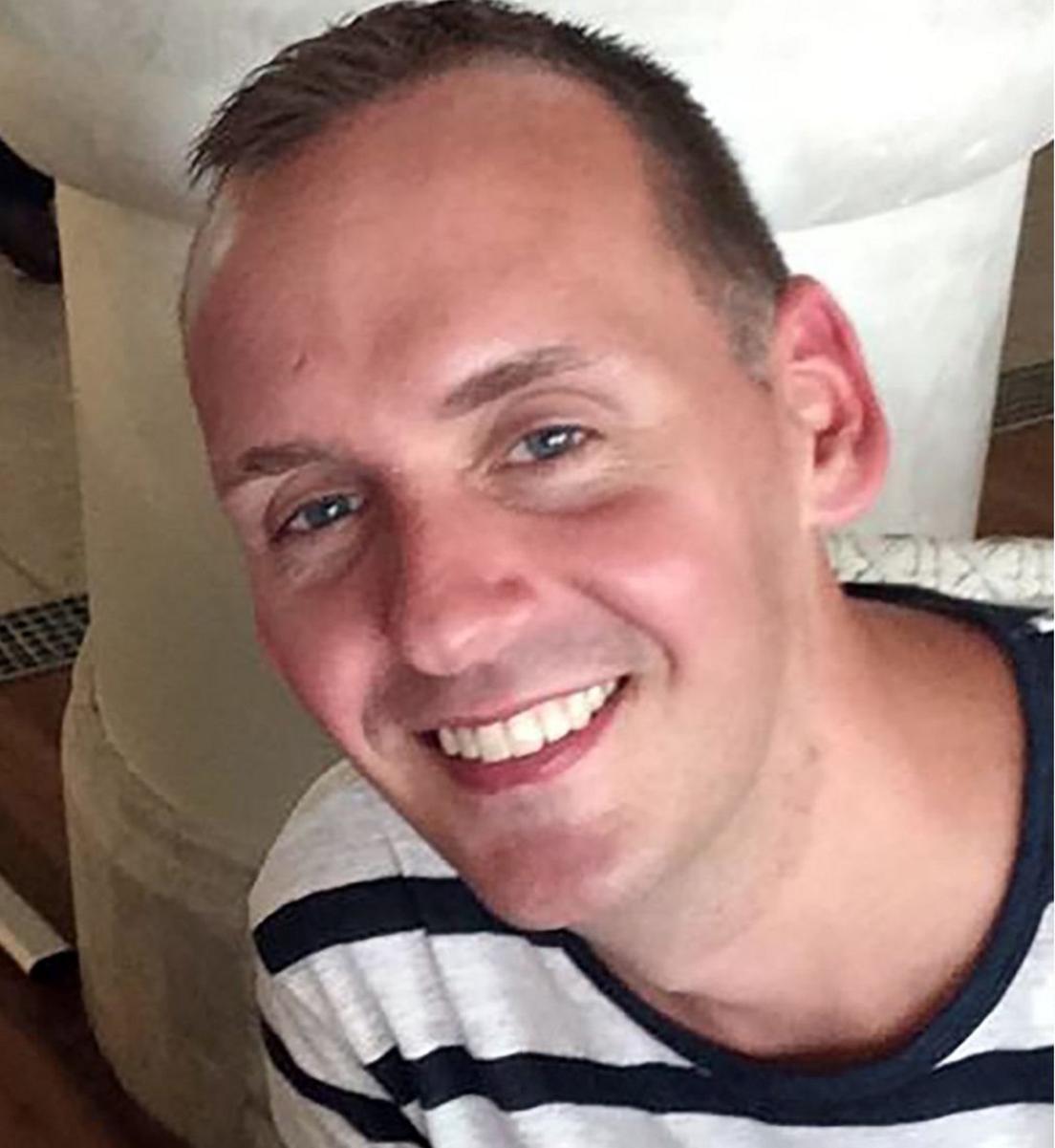
The chief executive of the LGBT+ charity Reading Pride, Martin Cooper, who knew both men, said their deaths were "a tragedy to so many people" and that they would be "sorely missed".
"They should be remembered as extremely friendly gentleman who were always fun, engaging and a pleasure to be around," he added.
The third man has been named as 49-year-old scientist David Wails.
Michael Main, who knew all three victims, said he had "a lot of banter" with Mr Wails as regulars at The Blagrave Arms pub in Reading town centre.
Speaking to BBC Breakfast, he recalled Mr Wail's "dry sense of humour" and how "he would do anything for anyone that he could".
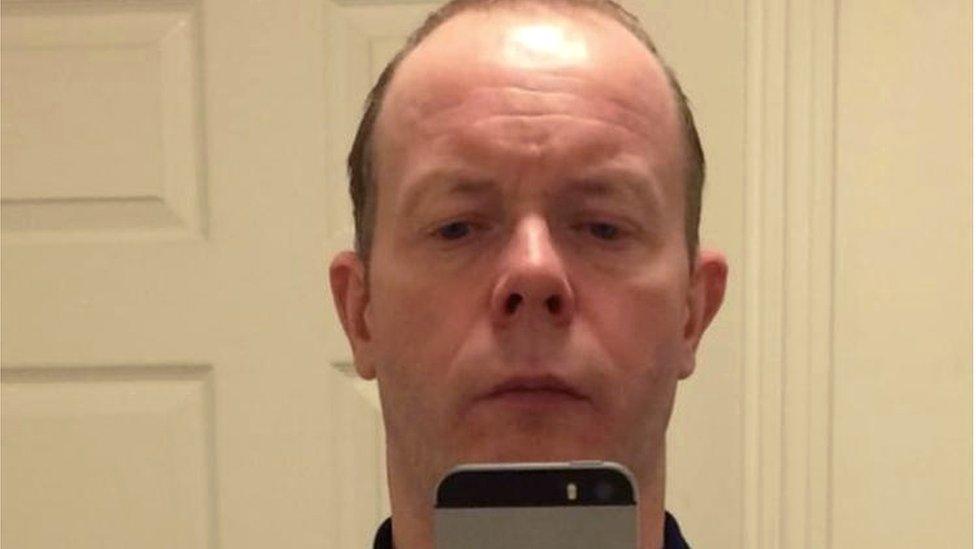
David Wails was a scientist
What do we know about the suspect?
Mr Saadallah, a 25-year-old Reading man, came to the UK from Libya in 2012. He originally claimed asylum and was given leave to remain in 2018, the BBC's home affairs correspondent Daniel Sandford said.
A close member of his family told the BBC that he left Libya to escape the violence there, and that he had suffered from post-traumatic stress from the civil war. However, he had been thinking of trying to return.
They said his long-standing mental health problems had been exacerbated by the coronavirus lockdown.
He came to the attention of MI5 last year as someone who might travel overseas, possibly for terrorism purposes, but they assessed that he was not a genuine threat or an immediate risk.
No case file was opened which would have made him a target for further investigation.
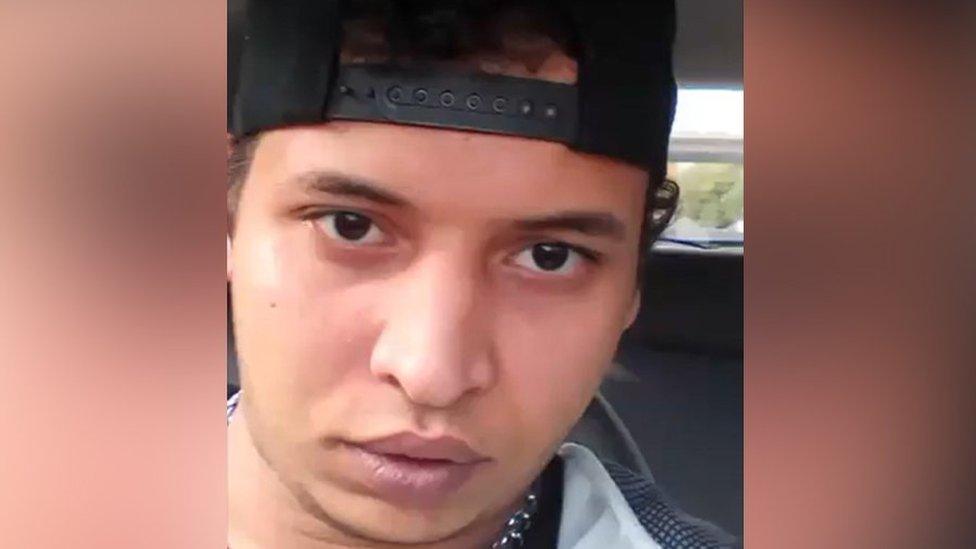
There are about 3,000 people under investigation by MI5 over extremist activity, according to BBC security correspondent Gordon Corera.
Mr Saadallah was among a further 40,000 names in the agency's system but who were not under active investigation, Corera said.
A friend of the suspect told Sandford that Mr Saadallah seemed to be a "normal, genuine guy", and had been someone with whom to smoke cannabis.
Kieran Vernon said: "He seemed like me or you. Whenever we used to meet up we used to talk about drinking whiskey and how different ganja (cannabis) affects the different thinking of mind. And that's pretty much all we'd chat about."
Neighbours said Mr Saadallah threw a TV from his top-floor flat this year and had a mental health key worker.
Neil Basu: "Officers have found nothing to suggest anyone else was involved in this attack"
Officers are not looking for any other people in connection with this incident and say there is no intelligence to suggest that there is any further danger to the public.
Metropolitan Police Assistant Commissioner Neil Basu said that the "motivation for this horrific act is far from certain".
What did witnesses see?
The park, located in the Reading town centre, was reportedly busy at the time of the attack, and officers are appealing for anyone who may have seen something to contact police.
Witness Laurence Wort, 20, told the BBC that he was visiting Reading for the day and was about 10m from the attack.
"The park was pretty full, a lot of people sat around drinking with friends when one lone person walked through, suddenly shouted some unintelligible words and went round a large group trying to stab them," he said.
"He stabbed three of them and then turned and started running towards me, when we turned and started running.
"When he realised that he couldn't catch us he tried to stab another group sat down.
"He got one in the back of the neck and then when he realised everyone was starting to run, he ran out the park."
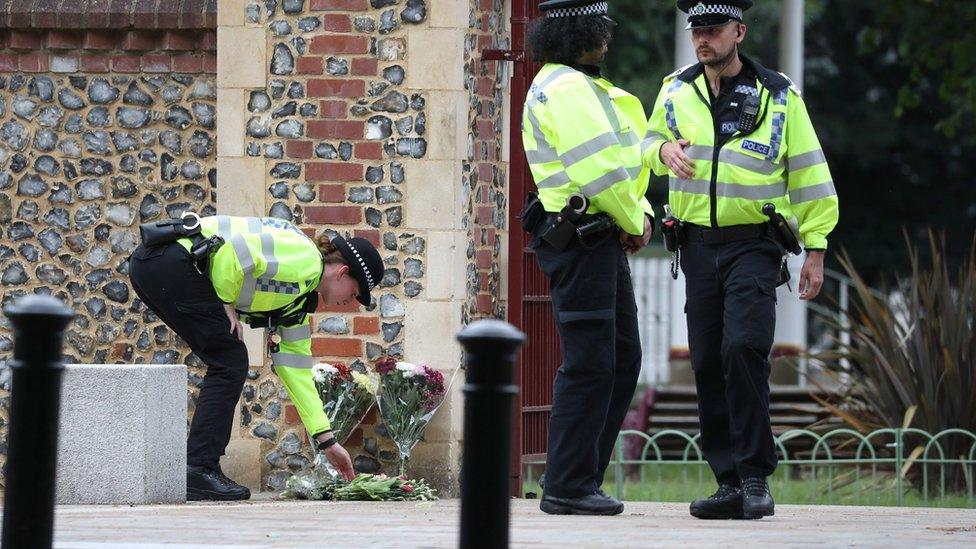
What has the reaction been?
Prime Minister Boris Johnson initially tweeted, external to say that his "thoughts are with all of those affected by the appalling incident in Reading".
In a later interview on Sunday, the PM said: "If there are lessons that we need to learn about how we handle such cases, how we handle the events leading up to such cases, then we will learn those lessons - and we will not hesitate to take action when necessary."
Asked what action he was suggesting, he replied: "If there are changes that need to be made to our legal system to stop such events happening again, we will not hesitate to take that action - as we have before, you will recall, over the automatic early release of terrorist offenders."
Labour leader Sir Keir Starmer said communities across the UK were "united in their grief" and that he wanted to work with the government to see what lessons could be learnt, adding "this is not a time for party politics".
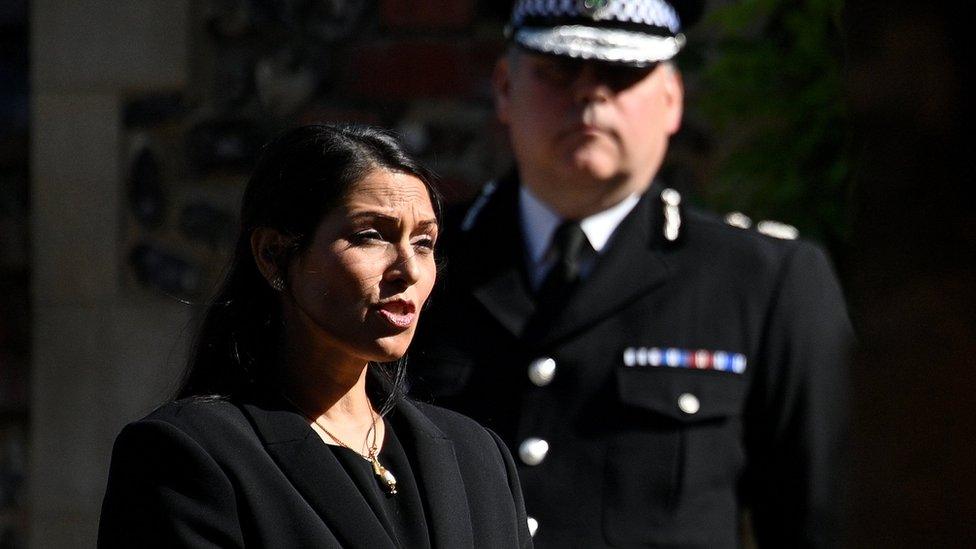
Home Secretary Priti Patel said the threat of terrorism was "rapidly changing" in the UK
On a visit to the crime scene on Monday, the home secretary said investigators were carrying out "extensive work" into the attack.
Ms Patel added that officers must "look at all aspects" of Mr Saadallah's history, which she said "dates back over several years".
Speaking in the Commons later, the minister said the terrorism threat facing the UK was "complex, diverse and rapidly changing" - and that the threat posed by lone attackers was "growing".
Reading Borough Council leader Jason Brock said the town was "an incredibly strong community" where "people will come together and they won't allow themselves to be divided".
- Published27 June 2020
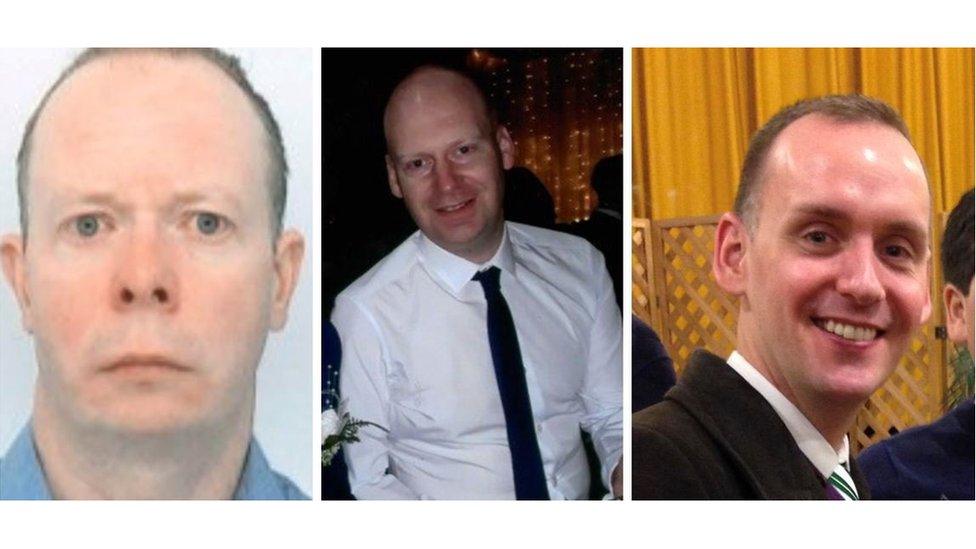
- Published21 June 2020
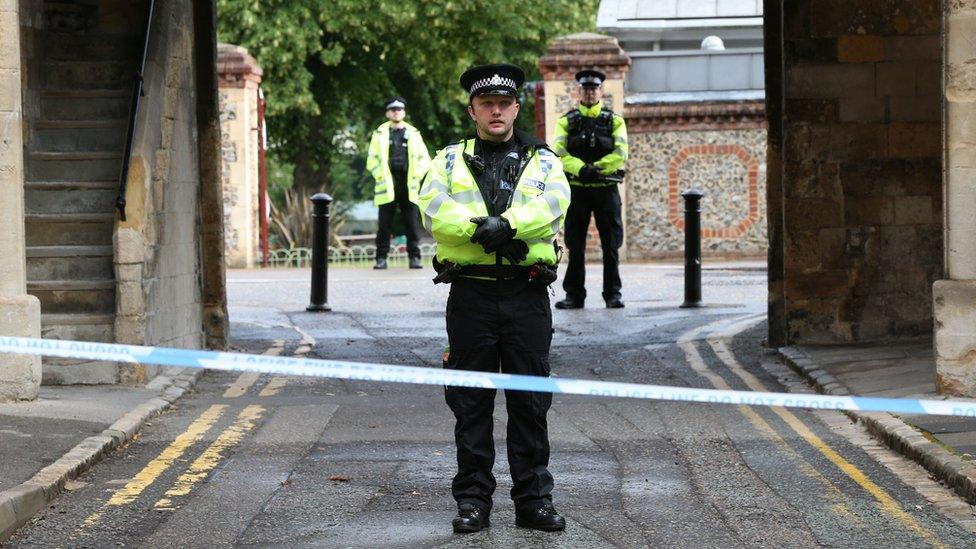
- Published21 June 2020
